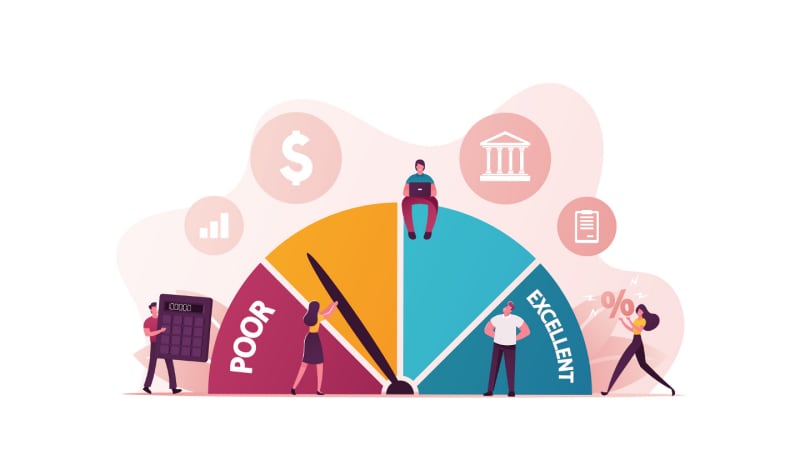735 credit score: A guide to credit scores

Quick insights
- A 735 credit score is considered to be “good” by both main credit scoring models.
- A 735 credit score can help you access approvals and lower interest rates more so than a poor or fair credit score.
- By implementing a few strategies, you could further improve your credit score and expand your financial opportunities.
Having a good or bad credit score won’t be helpful if you don’t understand what that score means and how it can impact you during your financial journey. Let’s explore what a 735 credit score means.
Understanding a 735 credit score
Credit scores above 700 are generally considered good, and a score of 735 is considered to be in the good range according to the main scoring models.
To help you better understand where a 735 credit score falls, let’s review the credit score ranges for both the VantageScore® and FICO® scoring models below.
As of May 2024, VantageScore® ranges are:
- Excellent: 781 to 850
- Good: 661 to 780
- Fair: 601 to 660
- Poor: 500 to 600
- Very Poor: 300 to 499
As of May 2024, FICO® score ranges are:
- Exceptional: 800+
- Very Good: 740 to 799
- Good: 670 to 739
- Fair: 580 to 669
- Poor: 579 and below
Generally, the higher your credit score, the better the chances are of getting access to credit and more favorable interest rates.
Factors that influence credit scores
Whether you’ve been tracking your score for years or you are new to credit, it’s important to understand how and why your score came to be. There are several factors that influence your credit score, including but not limited to:
- Payment history — this factor makes up a large portion of your credit score, and shows your ability to make your payments on time.
- Hard credit checks — when you apply for new lines of credit, your lender will run a hard credit check, which can temporarily hurt your credit score.
- Credit utilization — this is the amount of credit you use against your total available credit.
- Credit age — the longer you’ve had credit card accounts open, the more history you show lenders, which can lower your risk if you have demonstrated a positive credit history.
Buying a home with a 735 credit score
While buying a home with a 735 credit score may be possible, it could be more challenging than if you had an excellent credit score. For example, some lenders may require a larger down payment, charge higher interest rates or have stricter loan terms.
Be sure to carefully review your options and compare different lenders and loans to find the best fit for you and your situation. Though important, credit scores are just one of several factors lenders use when approving home loans.
Helping improve your credit score
With a higher credit score, you could find that you have more access to lower interest rates, better credit card rewards and an overall increased chance of loan approval.
To help improve your score, consider the following strategies:
- Continue to pay your bills on time. Because payment history is a key factor when calculating your credit score, continue to pay credit card balances and loan installments on time and in full, if possible.
- Lower your credit utilization ratio. Lowering this ratio to about 30% and lower can help improve your credit score, as it shows don’t need to rely as heavily on credit.
- Pay off your debts. Paying off your debts on time can help lower your debt-to-income ratio, which is another important factor that lenders may consider when approving you for credit.
- Monitor your credit report. When you review your credit report, you can catch inaccuracies or signs of potential fraud or theft. Catching these early on and reporting them to the credit bureau(s) can help with your credit score.
- Consider enrolling in Chase Credit Journey®. This is a free online tool anyone can use to check their credit score without impacting it. You may also want to use the credit score improvement feature. This is a personalized action plan, provided by Experian™, that is based off your credit behavior and financial goals.
Common mistakes to avoid when trying to improve credit score
It’s important to avoid common mistakes when it comes to trying to improve your credit score. For example, while it may seem paradoxical, do your best to not close old credit card accounts that you rarely use. This is because doing so can shorten credit history and increase your utilization ratio, which may negatively impact the credit score.
Additionally, try to avoid applying for several lines of credit all at once, as this will result in multiple hard credit checks that may temporarily lower your credit score.
In conclusion
Whether you’re new to credit or a seasoned credit user, understanding your credit score is a helpful way to improve your overall financial wellness. A 735 credit score can put you on a positive track towards getting the approvals for loans and cards you want, but a higher credit score can further expand your options and result in more favorable terms.



